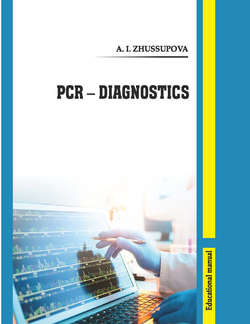Читать книгу PCR – diagnostics - Aizhan Zhussupova - Страница 7
На сайте Литреса книга снята с продажи.
Chapter 3
COMPONENTS OF THE PCR
Adjuncts and cosolvents
ОглавлениеEffects of additives in the polymerase chain reaction are reviewed by Ernest J. Mueller in the third edition of PCR Technology: Current Innovations by Tania Nolan, Stephen A. Bustin by Taylor and Francis Group CRC Press, 2013. Assuming that the reaction is suitably formulated, PCR amplifications should be achieved if a suitable template (substrate) is available. Much of this literature is focused on methods for effective amplification of less-than-perfect substrates, whether the cause lies with high-melting DNA or template that carries inhibiting contaminants.
Examples of poorly amplified templates have been reported throughout the 20 years of literature, and a variety of additives have been applied with the claim of melting DNA template and facilitating polymerase amplification.
As such dimethyl sulfoxide (DMSO; 1-10 %) can improve dena- turation of GC-rich DNA and help overcome difficulties of polymerase extension through secondary structure. Lastly, ammonium sulfate increases the ionic strength of reaction mixture, which alters denaturing and annealing temperatures of DNA and enzyme activity. Enhancement also appears to depend on template structure, and thus the literature evidence suggests that adjunct-mediated PCR enhancement is template- and adjunct-specific.
In particular terms, this implies that each PCR enhancer must be optimized for each amplified DNA locus and the adjunct of choice. Another application of PCR additives is to combat sample-introduced inhibitors. The phenomenon was initially counteracted by diluting samples past the inhibition threshold of the polymerase.
This tactic is not always possible, especially for clinical, environmental, and plant-derived nucleic acid samples. Bovine serum albumin (BSA) in fact can bind certain PCR inhibitors. The concentration range used can vary from 10-100 pg/ml. Formamide (1.2510 %) facilitates primer-template annealing reactions and lowers the denaturing temperatures of melt resistant DNA.
Strategies to relieve inhibition depend on the inhibitor, and the lengthy listings of PCR inhibitors include many of the compounds used to enhance amplification efficiency as well as reagents required in the purification of nucleic acids. In cases where inhibitors cannot be purified or dilutes away, it appears that the solution, if possible at all, is empirical and as specific and difficult as the amplification of high- melting templates.
